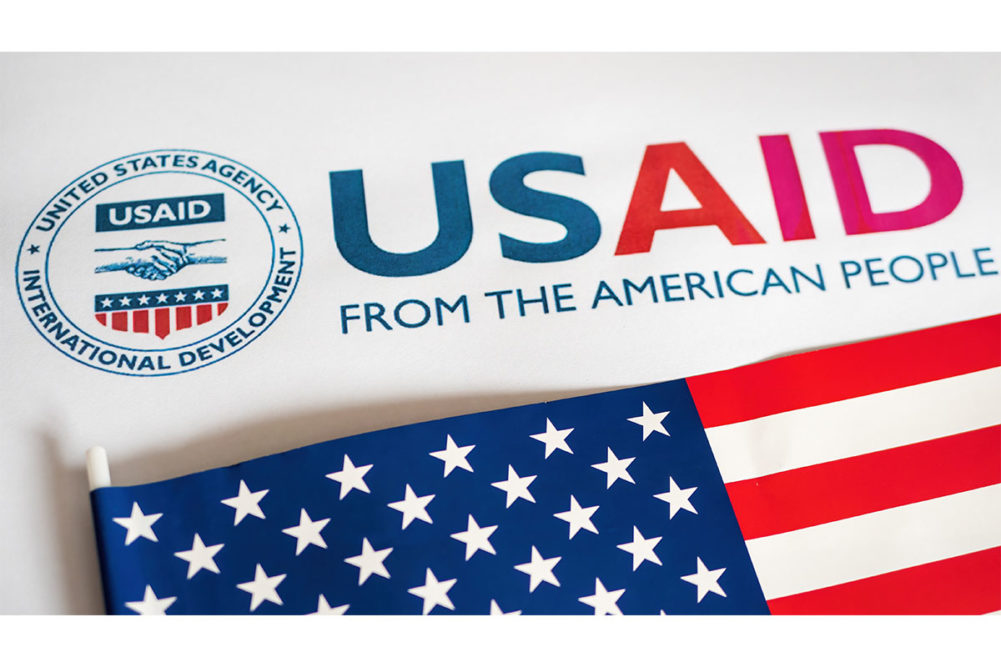WASHINGTON — The North American Millers’ Association (NAMA) is prioritizing the inclusion of the American Farmers Feed the World Act in the next farm bill, foreseeing its advancement as an opportunity to feed people around the world with US-grown commodities instead of food purchased from US agricultural competitors.
The legislation eliminates the practice of giving food aid through cash vouchers or purchases from US agricultural competitors and restores the Food for Peace program to an in-kind commodity donation program.
Additionally, the bill simplifies the release mechanism in the Bill Emerson Humanitarian Trust, which allows the US Agency for International Development to respond to unforeseen international food crises. The existing release mechanism has been onerous and may delay the trust from reaching targeted beneficiaries on a timely basis, according to NAMA.
The farm bill, slated to now expire Sept. 30, 2024, with the continuing resolution passed by Congress to avert a government shutdown. The extended appropriations, which include the Food for Peace program, expire on Jan. 19. The impending deadline is a matter of concern for NAMA but also represents an opportunity, said Kim Cooper, senior director of government affairs at NAMA.
“The extension just means that we have more time to garner more support for those changes to be included in the base text of the farm bill,” she said. “We are hopeful the American Farmers Feed the World Act will be included in the base text of the farm bill, at least on the House side.”
Ms. Cooper said NAMA sees the American Farmers Feed the World Act, introduced by Senators Mike Braun of Indiana, Jon Tester of Montana, Roger Marshall of Kansas, and Pete Ricketts of Nebraska and Representatives Tracey Mann of Kansas, John Garamendi of California, Rick Crawford of Arkansas, and Jimmy Panetta of California, as a remedy for what it views as irresponsible allowances in the discretionary spending of Food for Peace by the US Agency for International Development (USAID).
She raised NAMA’s concerns with USAID’s decreasing use of US commodities, “which is why the American Farmers Feed the World Act says USAID needs to spend at least 50% of the Food for Peace budget on buying US commodities and shipping them overseas,” she said.
“What we do know is that the majority of that money is being spent on things other than buying food to feed people,” Ms. Cooper said. “It’s very unclear what’s included in the ‘administrative’ spending buckets in Food for Peace. As a result, the UN World Food Programme is cutting off a number of beneficiaries because they just don’t have the funding for food to feed people.”
Ms. Cooper estimated current Food for Peace funding at about $1.75 billion and the Emergency Food Security Program (EFSP) at $4 billion. “The idea that USAID and the smaller NGOs still need this flexibility … it doesn’t make any sense because they have that in EFSP and they have all these other programs that didn’t exist in previous decades that they can tap into,” she said.
Some groups, such as the Freedom Caucus (a caucus of House Republicans), have gone so far as to advocate “either completely zeroing it (international food aid program funding) out or defunding Food for Peace by 70% in addition to cutting the rest of USDA programs by 14% ... And so that’s definitely something that we have our eye on,” Ms. Cooper said.
NAMA is urging Congress to continue assisting in many areas of the world where hunger remains a problem.
“We look at the crises that are going on around the globe and the UN World Food Programme is saying, ‘Hey, we’re having to cut off (food assistance) to all these different countries,’” she said. “The solution is not to abandon these programs altogether.”
The American Farmers Feed the World Act comes at a pivotal moment in the nation’s longstanding undertaking to alleviate world hunger, Ms. Cooper said. She voiced optimism that the changes included in the legislation would “actually allow us to feed millions more people every year.”





